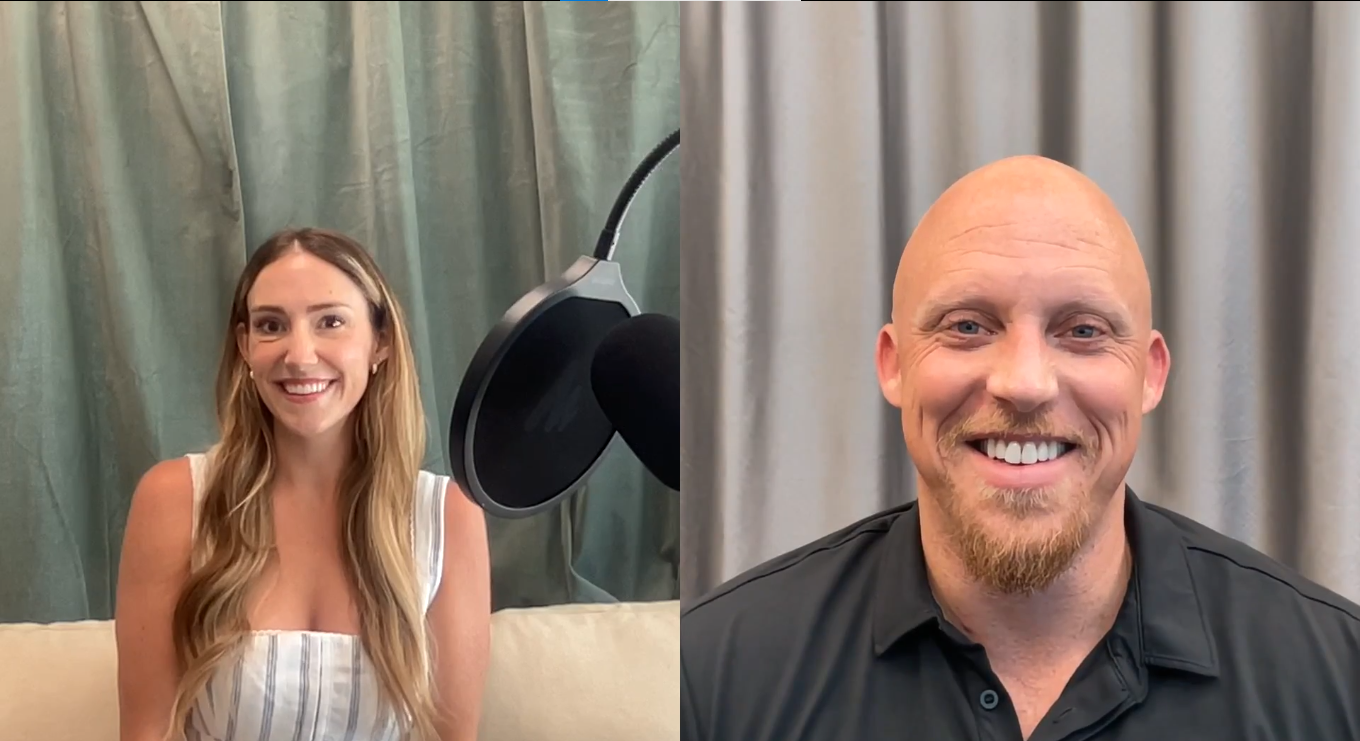The Productivity Skills That Actually Get You Promoted
Bottom line up front: Promotions aren't just about who works harder. They're about working smarter. Through some in depth research, I wanted to report on specifically which productivity skills drive career advancement.
A massive MIT study tracking 30,000 management employees found something surprising. "Potential ratings" predict promotions 75% more effectively than performance ratings alone. The difference? Potential ratings are driven by people's perceptions of you and your work. Your productivity is a big part of that perception.
Top performers deliver 800% more productivity than average workers through systematic skill development. McKinsey research shows this isn't about talent. This isn't saying you need to be 800% more productive to get promoted. What it's about is systematically developing productivity skills that compound your impact.
Companies now reward measurable productivity over tenure. Machine learning models can predict promotions with 94% accuracy based primarily on training completion rates, performance metrics, and cross-functional project leadership - all productivity-related factors. If they can do that with 94% accuracy without meeting you or getting to know you, to me that means your productivity is a bigger driver than "being buddy-buddy with the boss."
The Eight Skills That Separate Promotable Professionals
1. Time Management and Strategic Prioritization
Photo from Pexels
Only 18% of professionals both HAVE and can CLEARLY DESCRIBE their time management systems, yet those with systems report 44% better work control. Meta-analyses show time management correlates moderately with job performance, and the effect compounds exponentially over their full career.
Tactical implementation: Use the Eisenhower Matrix (which I talk about more under A Few To-Do List Tips & Tactics) and time blocking (A big part of my discussion on implementing Life Balance, Life Balance: The Blueprint You've Been Missing). Research shows 100% of Eisenhower Matrix users report work under control 4-5 days per week. Workers without time management systems waste an average of 91 minutes daily on unimportant tasks.
2. Delegation and Team Empowerment
CEOs who excel at delegation generate 33% higher revenue, yet only 28% of companies teach this skill. Despite delegation being rated the second most important skill for preventing burnout, studies show 90% positive correlation between effective delegation and employee performance.
Tactical implementation: Simple question. Could YOU as the leader take a 2 week vacation to Europe next week and be completely out of touch with your team the whole time? If your answer is anything other than "yes" (I'm betting like me yours is probably closer to "maybe" or "no") then start there, and start tomorrow. THIS is a real area of opportunity for you. Delegation does 2 big things for your team's productivity: 1) It removes you as a bottleneck. They should be able to operate without you. 2) It increases your team's capabilities of handling unexpected issues that WILL happen. You can start by cross training one task, think of it like a mini-rotation program. One person works on what another person regularly does. They don't take the whole job, just one task. That new person documents that one task. Then you rotate the task to a third person, who follows the document and updates it again. If you're the senior leader, ALL your tasks should have people capable of doing them. The best part, you don't have to hire people to do this. You could even leverage people from outside your department.
3. Email and Communication Efficiency
Ai generated photo
Communication consumes 60% of knowledge workers' time, making efficiency crucial for advancement. Clear communication ranks in the top 10 skills employers seek when hiring for higher level positions.
Tactical implementation: Let's see where you are with this. Try this. Copy/Paste the last 10 email chains (emails where you've responded in line more than once, so it's a back-and-forth) into an AI like ChatGPT. Use this prompt:
"Here are 10 email chains I've been involved in. Please analyze them and give me structured feedback on my communication style, clarity, and efficiency. Specifically:
Rate each email (1–10) on clarity, tone, conciseness, and effectiveness.
Identify recurring strengths (things I consistently do well).
Identify recurring weaknesses or habits that reduce efficiency.
Suggest concrete ways I can improve (phrasing, structure, formatting, tone, etc.).
Provide a short "before vs. after" example rewrite of one or two emails to show how your suggestions would look in practice."
4. Meeting Optimization and Leadership
Executives spend 23 hours weekly in meetings while professionals lose 31 hours monthly to unproductive ones. However, functional meeting leadership demonstrates strategic thinking and team productivity skills that predict advancement.
Tactical implementation: The number one indicator that "This meeting could have been an email" is were people engaged or did they stay on mute the whole time? If they don't engage, then what you likely had for them was a "broadcast" not a meeting, and broadcasts can be sent through video, audio, or in writing, like email, they do not need to be meetings.
This is one of my 4 signature sessions (Speaking & Intensives), I can really help with this. To get you started, I did a podcast episode on this topic, Could This Meeting Have Been An Email. Take a listen, dive into this one. Ask your peers for feedback. Copy/paste the calendar event and the meeting transcript into AI and ask AI for feedback like we did above in Number 3. Also, if you've never sent a recorded video as communication, incorporate that as a regular part of your repertoire.
Don't skip this. Good and efficient meetings get you promoted!
Photo from Pexels
5. AI and Automation Mastery
AI-skilled workers earn 28% higher salaries and complete 40% better quality work. Harvard Business School partnered with Boston Consulting Group to study AI productivity impact. The results: consultants using GPT-4 achieved 40% higher quality work, completed tasks 25% faster, and finished 12.2% more tasks overall.
Early-career talent with AI skills receive greater responsibilities according to 77% of leaders.
Tactical implementation: How much are you using AI? It's not about "if AI is relevant to your job". These days, when you're being considered for promotion you need to already be telling them "how AI is relevant to your job."
2 Hot Tips:
1) Use this question at the end of your initial AI prompt, "Ask me questions, one at a time, until you have everything you need." This will get AI to provide you better answers, but also start helping you practice to know what you left out of your prompt.
2) Volunteer to get involved in your workplace and for your team. Organizations want to know how they can incorporate it. Volunteer to be a part of that movement.
6. Decision-Making Speed and Quality
Fast decision-makers achieve 2x higher financial returns, but only 37% of organizations excel at both speed and quality. McKinsey research shows companies excelling at decision-making show 2x likelihood of achieving 20%+ financial returns.
Decision speed and quality both strongly correlate with individual advancement according to leadership research.
Tactical implementation: Do you have a system for making decisions? Can you articulate it? You need to be able to do both of these. Go on YouTube or Online Learning and educate yourself, or if you're a reader like I am, read a book or two on it. Also, you need to be comfortable making decisions. Waiting for people to make decisions is one of the biggest wastes in organizations, and many times the decision does not have any consequence behind it. See if you can get from your boss, AND if you can give the members of your team, a framework for when you want them to make decisions. Something like:
"If the decision you're making will not result in legal trouble, compliance violations, physical harm to anyone, damage to important business relationships, and could be undone for less than $500, then I want you to make the decision, don't wait for approval. However, if it sets a new precedent for how we handle similar situations in the future, check with me first regardless of the dollar amount. If you can't reach me within 2 hours and the decision can't wait, use your best judgment and we'll discuss it afterward. The higher you can make that dollar threshold, the better this can go."
Increase or decrease that dollar threshold, try to keep it as high as you can. If your organizational culture limits delegation authority, start smaller - even $50 decisions or specific task categories create team efficiency gains while building your credibility as a leader.
7. Deep Work and Focus Capabilities
Workers switch apps 250 times daily with 47-second attention spans, making focus skills increasingly valuable. Deep work research shows high-quality work equals time spent multiplied by intensity of focus.
Interruptions cost 20+ minutes to regain momentum, making focus capacity progressively important. Research proves maximum 4 hours daily before attention diminishes.
Tactical implementation: Protect your peak hours ruthlessly. Block 90-120 minutes of your best energy time for your most important work. No meetings, no email, no Slack - just deep work. Use the phone-in-another-room test - if your phone is within arm's reach, you're not really doing deep work. Master the art of saying "I'm in deep work mode until [specific time], I'll get back to you then." Most "urgent" requests can wait 2 hours. Practice progressive focus building - start with 25-minute blocks and work up to 90-120 minute sessions.
For me personally, I found my superpower by using "focus music" during my focus periods. I wrote about it here with some links to free playlists for you to try for yourself if you like. Turbocharge Your Focus & Productivity Through Music.
8. Systems Thinking and Strategic Perspective
Strategic thinking skills directly correlate with promotion readiness and measurable advancement advantages. Leaders who demonstrate systems thinking show measurable advancement advantages by connecting their work to broader business outcomes.
Tactical implementation:
Before every project or major task, ask yourself these three questions:
1) How does this connect to our company's top 3 business goals?
2) Who else is impacted by this work (other departments, customers, vendors)?
3) What could go wrong, and what would we do about it?
Start every status update or presentation by connecting your work to bigger business outcomes - lead with impact, not just activity.
Volunteer for cross-functional projects where you can see how different departments work together.
Read your company's quarterly earnings calls transcripts - you'll understand what leadership actually cares about and can speak their language.
Practice the "so what?" test - if you can't explain why your work matters to someone three levels above you, you need to think bigger picture.
Constantly connecting what you're doing with what the bosses in those higher meetings are talking about is a power move for your career. Your impact on your organization's big picture is a major part of promotion decisions.
Where to Start
Feeling overwhelmed by eight skills? Start with these three in order:
Time management systems provide the foundation for everything else.
Decision-making frameworks create immediate team productivity gains.
Communication efficiency amplifies the impact of your other improvements.
The Compound Effect of Skill Development
Professionals with multiple productivity skills experience exponentially higher promotion rates. LinkedIn Learning data reveals goal-oriented learners engage 4x more with development opportunities, while 94% of employees stay longer at companies investing in career development.
Merit-based promotion systems increasingly reward demonstrable skills over tenure. Machine learning analysis of promotion patterns shows training completion rates increase promotion probability by 23%, while cross-functional experience boosts promotion likelihood by 35%.
Organizations with strong coaching cultures generate 51% higher revenue and create more advancement opportunities for productivity-skilled professionals with 62% higher engagement.
The People Skills That Also Matter
While this post focused on productivity skills that drive promotions, career advancement requires complementary people skills too. In my recent interview with Kendall Berg from That Career Coach, she shared valuable insights about the interpersonal side of getting promoted.
Two critical gaps separate high performers who plateau from those who advance faster.
First, most people assume their boss knows what they're doing. Wrong. Your boss is too busy to track your contributions unless you advocate for yourself strategically.
Second, networking should consume 20% of your time, yet most people abandon relationship-building when busy. Kendall recommends dedicating 20% of your time to networking - not just with peers, but with your boss's peers and their boss too. She personally meets with 26 people at her boss's level or higher every quarter through quick coffee chats and brief check-ins.
Promotion decisions happen in "cross-calibration" sessions where peers evaluate you before you see your review. Most organizations use "cross-calibration" sessions where your boss discusses your promotion with their peers before you ever see your performance review. If those peers don't know who you are or what you contribute, you're at a massive disadvantage.
Communication skills become increasingly critical as you advance. Poor communication can stall careers even when productivity is excellent. Kendall's advice: do small talk at meeting starts, ask questions instead of immediately disagreeing, and always acknowledge others before responding.
The combination is powerful: master the eight productivity skills above while building strategic relationships and communication capabilities. That's the formula for sustained career advancement.
Your Next Steps for Career Acceleration
Start testing yourself in these areas. Leverage AI to assess yourself don't wait for your boss. We talked about how you can use AI to assess yourself. Take a minute and do that right now.
Take training in these 8 areas. If you have access to a coach through your organization, research shows coaching delivers 788% ROI with 70% higher likelihood of advancement within one year. However, you can self-implement many of these eight skills by looking up videos on YouTube. Don't let cost be a factor in whether you're developing. Use the free options unless paid options are available.
Communicate your productivity improvements strategically to managers and stakeholders. The MIT research on potential ratings shows that demonstrable capability matters more than current performance alone. Make your enhanced productivity visible. For each of the things you do, make a note, and incorporate it in your upcoming performance review discussion with your boss. They need to know what you're doing to develop and how it's going.
As you implement these skills, expect some initial resistance to changes in delegation and decision-making processes. This is part of leadership development - introducing better systems often requires working through team members' comfort with existing approaches.
These eight productivity skills create measurable career advantages backed by research across thousands of professionals. In an economy where productivity gaps cost companies millions annually, mastering these competencies positions you as indispensable talent worthy of advancement and investment.
Time is the currency of your life. Invest it in skills that compound your career growth.
References & Further Reading
MIT Sloan - Women are less likely than men to be promoted. Here's one reason why
McKinsey - Increasing your return on talent: The moves and metrics that matter
Harvard Business School - How to Delegate Effectively: 9 Tips for Managers
Harvard Business School - Navigating the Jagged Technological Frontier
Harvard Business Review - How to Demonstrate Your Strategic Thinking Skills
I’m Brian. At age 4, I was diagnosed with insulin dependent (type 1) diabetes and told that my life was going to be 10-20 years shorter than everyone else. As a kid I took time for granted, but now as an adult, time is the most precious thing that I have. After spending a career hands-on in the trenches as a leader at all levels, I now train Productivity Gladiators to level up their careers. Graduates wield superpowers in time management, practical leadership, communication, & productivity. If what you’ve seen here intrigues you, reach out, let’s chat!
“Time is the currency of your life, spend it wisely.”




